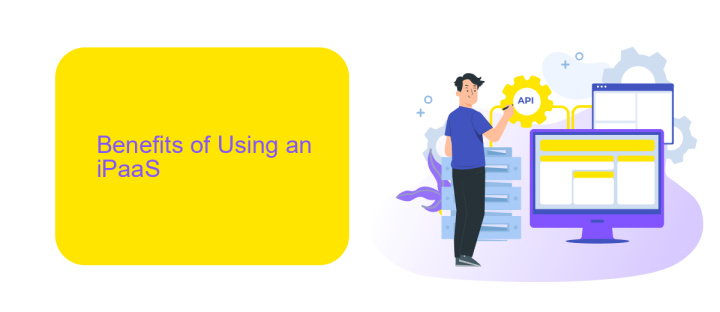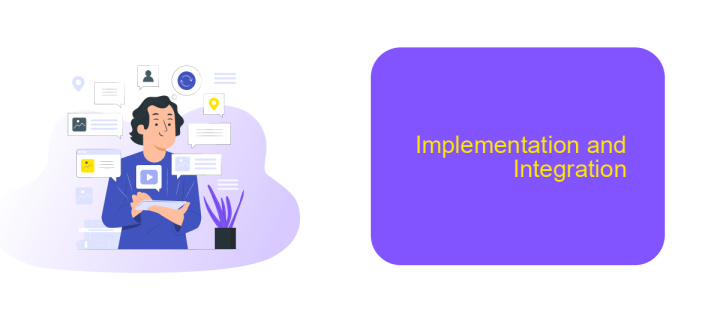Choosing an iPaaS
Selecting the right Integration Platform as a Service (iPaaS) can be a game-changer for your business, streamlining workflows and enhancing data connectivity. With a myriad of options available, understanding the key features and benefits is crucial. This article will guide you through the essential considerations to help you make an informed decision, ensuring seamless integration and optimal performance for your organization.
What is iPaaS?
iPaaS, or Integration Platform as a Service, is a cloud-based solution that enables the seamless integration of various applications, data, and processes across different environments. This platform facilitates the automation of workflows and ensures that data flows smoothly between disparate systems, enhancing overall efficiency and productivity.
- Automated data synchronization
- Real-time data integration
- Scalable infrastructure
- Pre-built connectors for popular applications
- User-friendly interface
One of the notable iPaaS solutions is ApiX-Drive, which offers a comprehensive range of features to simplify the integration process. With ApiX-Drive, users can easily set up and manage integrations without requiring extensive technical knowledge. This service supports a wide variety of applications and provides real-time data synchronization, ensuring that all systems are up-to-date. By leveraging iPaaS solutions like ApiX-Drive, organizations can streamline their operations and focus on their core business activities.
Benefits of Using an iPaaS

Implementing an Integration Platform as a Service (iPaaS) offers numerous advantages for businesses seeking seamless connectivity between their various applications and data sources. One of the primary benefits is the significant reduction in manual data entry and associated errors. By automating data flows, businesses can ensure that information is consistently up-to-date across all platforms, leading to more accurate reporting and decision-making. Additionally, iPaaS solutions often come with pre-built connectors and templates, which simplify the integration process and reduce the need for extensive coding knowledge.
Another key advantage of using an iPaaS is the scalability it offers. As businesses grow and their integration needs become more complex, iPaaS solutions can easily adapt to handle increased data volume and additional applications. Services like ApiX-Drive provide user-friendly interfaces that allow even non-technical users to set up and manage integrations efficiently. This not only saves time but also reduces dependency on IT departments, enabling faster implementation of new workflows and processes. Overall, iPaaS enhances operational efficiency, supports business agility, and facilitates a more connected and responsive enterprise environment.
Choosing the Right iPaaS

Choosing the right iPaaS (Integration Platform as a Service) can significantly impact the efficiency and scalability of your business operations. It's essential to consider various factors to ensure you select the most suitable platform for your needs.
- Compatibility: Ensure the iPaaS supports the applications and systems you currently use and plan to use in the future.
- Scalability: Check if the platform can scale with your business growth, handling increased data loads and more complex integrations.
- User-Friendliness: Assess how easy it is to set up and manage integrations. Platforms like ApiX-Drive offer intuitive interfaces that simplify the process.
- Security: Verify that the iPaaS provides robust security measures to protect your data.
- Cost: Compare pricing models to find a solution that fits your budget without compromising on essential features.
By carefully evaluating these factors, you can choose an iPaaS that not only meets your current requirements but also supports your future business needs. ApiX-Drive, for instance, offers a seamless integration experience with a wide range of applications, making it a compelling choice for businesses looking to streamline their operations.
Implementation and Integration

Implementing an iPaaS (Integration Platform as a Service) solution requires careful planning and execution. The first step is to assess your current systems and identify the specific integration needs of your organization. This involves mapping out data flows, understanding the requirements of different applications, and pinpointing potential challenges.
Once you have a clear understanding of your integration needs, the next step is to select the right iPaaS solution. Look for a platform that offers robust features, scalability, and ease of use. For example, ApiX-Drive is a versatile tool that simplifies the integration process by providing pre-built connectors and an intuitive interface.
- Evaluate your existing IT infrastructure.
- Identify key applications and data sources.
- Select an iPaaS solution that meets your needs.
- Configure connectors and set up data flows.
- Test integrations thoroughly before going live.
After setting up the integrations, continuous monitoring and maintenance are essential to ensure everything runs smoothly. ApiX-Drive offers real-time monitoring and alerts, which help in promptly addressing any issues. Regularly updating and optimizing your integrations will help in maintaining efficiency and adapting to any changes in your business environment.
Security and Compliance
When selecting an iPaaS, prioritizing security and compliance is crucial. Ensure the platform adheres to industry standards such as GDPR, HIPAA, and SOC 2. Look for features like data encryption, secure data transfer protocols, and robust authentication mechanisms to protect sensitive information. Regular security audits and vulnerability assessments are essential to maintain a secure environment. Additionally, consider the platform's data residency options to comply with regional data protection regulations.
ApiX-Drive, for instance, offers a comprehensive suite of security measures, including SSL encryption and OAuth authentication, to safeguard your integrations. The platform also undergoes regular security evaluations to ensure compliance with the latest standards. By choosing a service like ApiX-Drive, you can confidently manage your integrations while maintaining high levels of security and compliance. Always review the iPaaS provider's security documentation and compliance certifications to ensure they meet your organization's specific requirements.
FAQ
What is an iPaaS?
How do I choose the right iPaaS for my organization?
What are the benefits of using an iPaaS?
Is it necessary to have technical skills to use an iPaaS?
Can an iPaaS handle complex integrations?
Time is the most valuable resource in today's business realities. By eliminating the routine from work processes, you will get more opportunities to implement the most daring plans and ideas. Choose – you can continue to waste time, money and nerves on inefficient solutions, or you can use ApiX-Drive, automating work processes and achieving results with minimal investment of money, effort and human resources.

